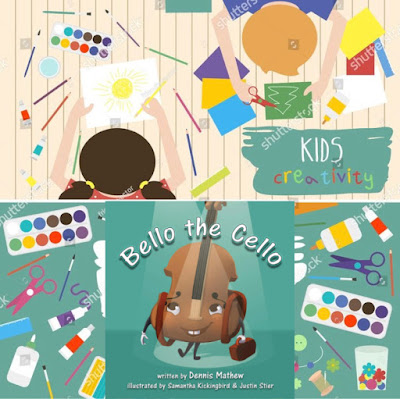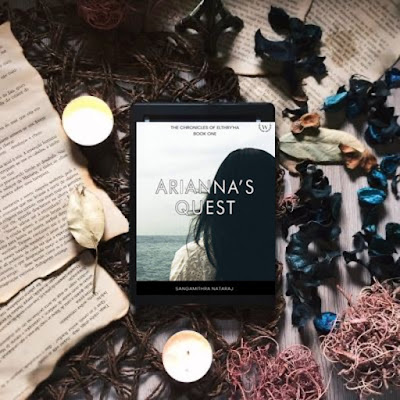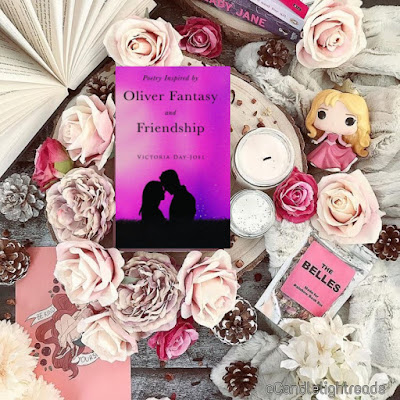Lalu Krishnan
The Robotmaker
Ques.1 Discuss the journey of becoming an author.
Since childhood, I had a fondness for the written word. However, through many years of undivided focus on making a living, the thought of writing a book had never occurred to me, until much later in life.
My short literary career had its genesis in my day job and has been influenced and motivated by my colleagues - a bunch of creative folks, many of them, writers by profession. .
Five years ago, I received feedback that I was losing my personal connect with my team. As one of the interventions to address this feedback, I sent a series of fortnightly emails to the team. Apart from the minimal, mundane business updates, my emails would recount random tidbits from my life. The anecdotes included the amusing, but happy anticlimax of my daughter’s school admission to my clumsy goof-ups during the intra-office futsal tournament. These emails triggered very positive feedback about my style of storytelling. Such feedback, coming from this bunch meant a lot.
That’s when I took to writing seriously, at the “young” age of 40 - a time when most successful authors would be planning their tenth bestseller!
Other than working on The Robotmaker, in the last four years, I have written around twenty short stories. I have put up some of them in my blog - Bohemian Ruminations. My short stories have received very generous feedback from its readers. One of my stories - The Questions of Choice - has won the Sparsh Short Story Competition, 2018. Another story, the Lounge, was part of the Top Stories section of one of India’s leading online publishers and received rave reviews. I have also been conferred the title of Literary Colonel by a leading online literary platform. These accolades motivated me even more and drove me to believe that I should keep writing.
Ques.2 What is the advice the author would like to give to the future or the aspiring writers ?
Take the plunge; Keep writing and improving; Enjoy the process; Getting published will be tough - so, don’t get disheartened by those rejections.
Ques.3 What was the most difficult point while writing this book ?
I struggled a bit with writing and re-writing the drafts. The final draft was very different from the first one in terms of the sequence and presentation of the scenes. I spent a lot of time trying to attain the most optimum flow at a pace that would sustain the reader’s interest. It took a lot of time and effort to read, re-read and mould the drafts through permutations and combinations of the scenes and the transitions.
The Writer’s Block is another challenge that I try to beat through the combination of reading, observation and experiences.
But, the biggest challenge was to find the time to write and to make it into a habit, while balancing the priorities of a high pressure day job.
However, the challenges faced while writing the book was minuscule in comparison to what I faced in getting it published. I think most debutante authors would agree with me that it is an ordeal to find a home for her/his work - especially fiction. So, I consider myself fortunate to be in the situation that I am in.
Ques.4 Is this real life story ?
No, this is not a real life story. However, for me, the main inspirations to take the story along come from reading, experiences and observation of people and incidents around me. So, there will be those shades in this story as well. But then, these observations and experiences were juxtaposed with imagining the “what-ifs”. Then these were twisted and molded to fit into the plot and make it interesting.
Ques.5 What makes you smile the most ?
Going through my daughter’s timeline photographs from her infancy until now. She is eleven. Other than the obvious reasons to smile, often these photographs are points of references for other incidents or milestones in life at that time. So, some of these smiles may be poignant and nostalgic.
Ques.6 What’s the theme of the book cover from your view point ?
I thank Suhail and The Bookbakers team for designing the cover. It was a collaborative process. There was some deliberation on the color, the theme and the elements. Initially we felt that the cover could be symbolic, driven through photographs. Eventually we narrowed down to an illustrative style and colors that made it more vibrant. The cover has the main characters - Sid and Shreya facing away from each other for obvious reasons, sitting on a piece of merchandise towed away by their company’s products…it is a robotic arm. The key team members look on. They are supported by the symbolic hand of Sid’s father, who is a by Sid’s side throughout his journey.
Ques.7 When will you be launching your next book ?
I am working on a couple of titles:
a mystery set in Konni in Kerala, inspired by some real-life events, but twisted to suit the plot
a historic narrative non-fiction about a very important, but sketchily chronicled female warrior queen
I hope to narrow down on one and complete the writing by the end of this year. The book can be expected after that, and would depend on how much time I’ll take to find a home for it.
Ques.8 What interests you the most as an author ?
As in any profession, I believe that a writer needs to go through the process and tick the boxes. As an author, apart from ticking the boxes and continuing with the rigour of writing, I need to look for ways and means to connect with potential readers and promote the writing. Since I am just taking my first steps as an author, I still feel that the process of writing is what interests me most. I hope to follow the process with sincerity and graciously accept whatever comes my way.
Ques.9 How did you decide the characters name ?
The idea was to have credible names that were easy to remember. Beyond this, not much thought was put behind the names of the characters. Some of the names may be of folks I was working with at that time. That is because of the recency effect and is purely coincidence.
Ques.10 How did you manage to write with your job ?
It is important to get into the rigour of writing, make it a habit and enjoy the process. I would make it a point to write a couple of pages everyday after work. It was also like a let out and a kind of a therapy after a stressful day at work. At times, I would also use early mornings. But the bulk of the writing would happen on weekends or other holidays.













